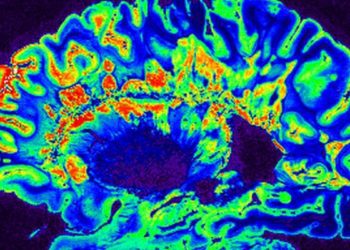Increased multiple sclerosis relapse after natalizumab (Tysabri) discontinuation (TY-STOP Study)
1. In patients with relapsing-remitting multiple sclerosis (MS), discontinuation of natalizumab therapy was associated with increased annual relapse rate and imaging findings of MS.
2. Although discontinuation of natalizumab was noted to have a trend of increased disease progression scores as measured by the Expanded Disease Status Scale (EDSS), no statistical significance was found.
Evidence Rating Level: 2 (Good)
Study Rundown: Natalizumab is known to be a highly effective treatment for relapsing-remitting multiple sclerosis (MS). However, use of this monoclonal antibody is associated with significant side effects, as well as an increased risk of infection with the John Cunningham (JC) virus and progressive multifocal leukoencephalopathy (PML). This study examined the impact of natalizumab use on long-term control of MS activity, as assessed by both clinical and radiologic criteria. This study demonstrated that patients who remained on natalizumab fared significantly better during 1 year of follow-up than those that discontinued, regardless of whether other disease modifying treatments such as interferon beta were initiated.
Following a large population from multiple treatment centers, these methods allow for better characterization of how MS may reactivate after natalizumab discontinuation. However, the 95% confidence interval for the relapse rate odds ratio was very wide, and barely met significance, suggesting the study could be underpowered. Further investigation of this issue could benefit from a study with a longer follow-up period. Additionally, the 24 dose benchmark at which point discussion of continued natalizumab therapy is typically initiated is based on data that indicated an increased risk of PML at this time. However, PML and other complications of natalizumab use may happen at any time, necessitating further studies to better elucidate both the risks and benefits of long-term treatment.
Click to read the study, published today in JAMA Neurology
Relevant Reading: Natalizumab-associated progressive multifocal leukoencephalopathy in patients with multiple sclerosis
In-Depth [prospective cohort]: In this study, 130 patients with relapsing-remitting MS who had received 24 doses of natalizumab were followed for 1 year, 95.4% of which completed the entire clinical follow-up period and were included in the analysis. At this point they were counseled that they may either continue with 300mg IV natalizumab every 28 days, switch to another disease-modifying therapy, discontinue treatment, or use the antineoplastic agent mitoxantrone hydrochloride. Patients were evaluated for relapse by neurologic exam at 24 doses of natalizumab, and every 3 months subsequently, to evaluate for new deficits. The primary outcome was mean annualized relapse rate. Secondary outcomes included disease progression as measured by EDSS, and findings on MR images obtained at 3-month intervals.
Both intent-to-treat and as-treated analyses were performed. In the as-treated analysis, the odds ratio for mean annual relapse rate was 3.28 (95% CI: 0.99-10.79, p=0.05) for those who switched from natalizumab to a different agent. For those that completely discontinued treatment the odds ratio was 4.40 (95% CI: 1.72-11.23, p=0.002). Imaging criteria corroborated these findings, with natalizumab quitters having higher probability of MS activity on MR compared with those who continued with this agent (OR 2.81, p=0.03). Similar results were found in the intent-to-treat analysis. There were no significant differences found on EDSS between groups.
Image: CC.Wiki
©2012-2014 2minutemedicine.com. All rights reserved. No works may be reproduced without expressed written consent from 2minutemedicine.com. Disclaimer: We present factual information directly from peer reviewed medical journals. No post should be construed as medical advice and is not intended as such by the authors, editors, staff or by 2minutemedicine.com. PLEASE SEE A HEALTHCARE PROVIDER IN YOUR AREA IF YOU SEEK MEDICAL ADVICE OF ANY SORT.









